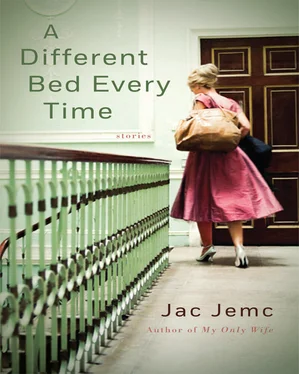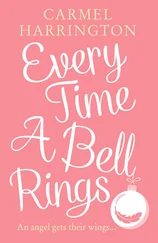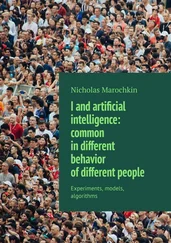Think telling someone he shouldn’t jump off that ledge for your sake instead of his own, compare it to the invasion of an epitaph, remember bedtime stories .
A chatelaine so full of tools delicate to a task should reveal what said person does with her measured time.
And yet, along with the tiny snips and bucket of a thimble, there hung a compass, a pocket watch, a skate key, a touch wood, and several other metallic objects of antiquity.
“The worst attraction,” she said, settling carefully onto the settee, “is to the everyday.”
We nodded, attempting careful equations behind our eyes, hoping our guest wouldn’t notice.
“My work is not why people die.”
When our gaze returned to her, she seemed closer.
“Tonight, I carry out a plan of nervy education.” She pulled a felt-wrapped bundle from the carpet bag at her feet.
The host took my hand in his. Each word was a surfacing fin. We were surrounded.
“When I die, I will die happy, because I will die doing what I love.” She began to unroll the felt. With the first tumble, a knife stretched out. With each subsequent movement of her hand the felt unfurled another blade.
She stood, grabbing handfuls of knives. “If something goes wrong, don’t tell me.” Her fists hung at her sides and she breathed deeply. Then, like nothing at all, the daggers were in the air. They framed her like rays of light surrounding a saint. As they fell, she caught each one and sent it back up. She danced and the chatelaine tinkled sweetly, lightening the mood of the knives’ silent flight.
The host released my hand and began to clap vigorously. In each slap of one palm against the other I heard his relief, but I’m sure she listened only to the pure praise she desired so. The host elbowed me, urged me to do the same, and yet I was still quite certain this would not be the end.
On the radio we’d heard about a trend in nature in which wolf packs were growing larger and larger — expanding into super packs. The packs were impossible to fight off. They’d attack one small animal and share the meat among them, then find another prey. It was like the wolf version of small plates. These super-packs were forming everywhere. There was one apparently on the prowl right in the area we were driving through. The car protected us, but we’d need to stop for gas some time.
We drove from Chicago to Albuquerque. This was the time I caught a ride with a friend of a friend of a friend — someone far enough removed that you’d doubt the truth of any of their stories, were I to tell ’em. As luck would have it, though, twenty-two hours passed with neither of us finishing a thing we had to say. We kept getting interrupted by roadside attractions, something on the radio, a cop pulling us over. Tale after tale cut short, so there’s no reason to retell ’em or to disbelieve ’em.
This friend of a friend, people called him “Coot.” I was too embarrassed to ask him his real name, and what would it have mattered?
We were both victims of well-wrought curiosity. Coot wanted to make his way to Sedona to see about some crystals. I heard about the chance of a cheap ride, and the word Albuquerque tripped off my tongue. I gave a rent check to my roommates and packed a bag full of fluorescent jean shorts and T-shirts covered in paint-soaked handprints. It was that decade. Coot and I displayed our suspicion of each other plainly, but the price of gas would be halved, and my friends of friends vouched for both me and him. I wouldn’t run off with the car or rifle through his belongings. He would get me there.
I had a boyfriend who’d just broken up with me, but that wasn’t unusual. He and I loved in a way that was always between talks, punctuated, alive. This might get old for some people, but it kept us going. His name was Wade, but I called him Wader. He hated it for being a homophone, but liked that I’d awarded him a nickname. When Wader heard about me spending twenty-two hours in a car with Coot, he begged me to stay, but even his sobbing didn’t drag me closer to him. The ten inches of black space between us on the couch stayed constant, until I hoisted my duffel onto my shoulder at the sound of Coot’s car horn. “I’ll write when I get there, Wader,” I said and he looked up at me, always dramatic, and said, “Well, if those don’t sound like dying words.” Trying not to let that sentence dot my mind, I threw my bag in the back seat and forced a smile at Coot.
Empty plastic bottles covered the floor of the car. “What do you say I pitch all of these the next time we stop for gas?” Across the dashboard, Coot had lined up twenty-two cat figurines. I counted ’em. “I know we don’t know each other so well, but there are exactly as many cats as there are hours we’ll be in this car.” Coot grunted and kept his eyes on the road. I would learn that he wasn’t one for believing in coincidences.
In the glove compartment I found a pistol that felt heavy, but Coot scoffed at my foolishness, telling me it was a toy. My stomach dropped down into the pile of plastic bottles, but Coot said, “Go ahead. Fire it at me. That’s how afraid you should be of that thing.” I refused his offer, and clicked the compartment shut again.
When it was my turn to drive, I counted the seconds between signs on the highway to stay awake. In more populated areas, I waited for the negative light of the sodium streetlamps to shine in on us, catching glimpses of the filth coating every surface of the car and our skin.
I tried to talk Coot into telling stories, but he’d trail off and pass out in the passenger seat or get himself distracted behind the wheel. I’d try to tell him stories, but he wasn’t much of a responder, so I’d get bored and flip the radio on, and he’d never complain that he wanted to know what happened. How did I get home that night? What was in the water? Who was at the door after all? Then on the radio, that story of the wolves came on. I couldn’t tell if Coot had heard it, but I grew nervous. When I switched the station to something I could sing along to, Coot shut the radio off. I could take a hint.
My friends back home wondered why I was going to Albuquerque. It couldn’t just be for the name, they said. “I need to feel some control,” I’d admit. I’d become so accustomed to stinking and failing that I wanted to set a goal I couldn’t fuck up. I could mess up a job opportunity easy. I could complain that I’d never get a painting just the way I wanted it. But to move my body from Chicago to Albuquerque and back felt like an easy and satisfying thing to do. “What will you do when you get there?” friends of friends asked. “Find a little proof and head on home,”
I’d reply, and more often than not, they’d say they were going to grab another beer and ask if I’d like one. When they returned with the two bottles, they’d have a story to tell about some quarrel they’d had earlier that day and we’d drift away from the need to understand why I was leaving.
I asked Coot questions, and mostly he remembered he didn’t care to talk to me. But a few times he responded automatically. He’d been convicted of a felony, a fact I think he was trying to scare me with. He told me it was better I didn’t know what. I said I thought it was my right to know, and he said, if anything, what he was convicted of made this car ride safer. I asked if he’d been in jail, and he said, “Um, that’s how that works, yes.” I was still pretty certain there was some wiggle room there, but if he wanted to play it like the two were unavoidably linked, then that was his call.
That same radio story came on about the wolves again. I shut it off and pulled out a sketchbook to doodle: several young boys tied to railroad tracks, a dirty man on a city apartment stoop, a full train showing a man with an empty seat beside him. Coot glanced at the drawing and said nothing. I tried to tell him a story about how I almost died. How I’d gotten very sick and how long it had taken me to notice how sick I was. How by the worst point I hadn’t showered in weeks, and I’d stopped leaving the house. How I didn’t notice that no one was calling me and I wasn’t calling anyone either. I waited for Coot to ask me what had been wrong, but I quieted down, and his voice never emerged. He filled with refusal. I learned that a skull doesn’t equal a mind.
Читать дальше












